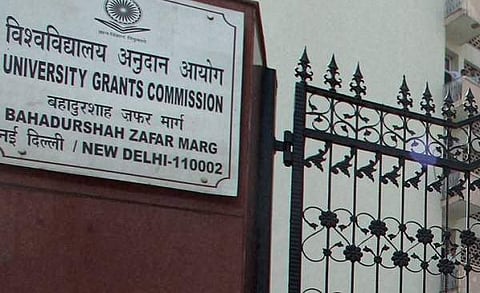

HYDERABAD: The University Grants Commission (UGC) may have brought all fellowship schemes under Direct Benefit Transfer (DBT) mode to ensure effective administration and smooth disbursement of fellowships to students but it has left PhD research scholars in the lurch owing to delayed payment of fellowships. The absence of a proper grievance redressal mechanism further adds to the woes of the scholars.
The delay in disbursement of fellowship is anything between two to eight months where as the rulebook directs the amount to be disbursed within the first week every month.
PhD scholars complain that fellowship is rarely on time. Arun John, a senior research scholar at the University of Hyderabad, received his arrears for the last nine months on April 3.
Under the DBT disbursement process, research fellows are required to submit continuation certificates and HRA certificates on a quarterly basis in the designated bank’s branch and no dues clearance from mess to the university on a monthly basis.
Only when all required documentation is done by all students of a particular batch that the varsities start processing them.
“So for instance if a student has gone home and has not been able to submit his fellowship claim, University will not process other fellowships until this student submits his documents too. This process is not student friendly,” said Tajamul Islam, student union president, Maulana Azad National Urdu University.
The senior research scholar receives his fellowship once every two to three months. In April, he received the money after three months.Senior research scholars are awarded `28,000 per month, 30 pc house rent allowance, and a contingency grant.
Non-NET fellows receive Rs 8,000 on a monthly basis for PhD. Junior research fellows are awarded Rs 25,000 per month along with 30 pc of house rent allowance, and a contingency grant for the period of two years. “The wait for the money, however, is perpetual,” said another scholar from UoH, Archana Rao.
“When we get the fellowship we make do with it, pay the dues and also those from whom we borrowed money. When it finishes, we again borrow from friends. This is how we survive,” said Suresh, a PhD scholar from English and Foreign Languages University (EFLU).
With a lot of students coming from socially and economically disadvantaged families, they don’t just have to fend for themselves but also send a part of the money back home.“Students from affluent families are able to manage but it’s especially frustrating for those who have families dependent on them,” said Archana.